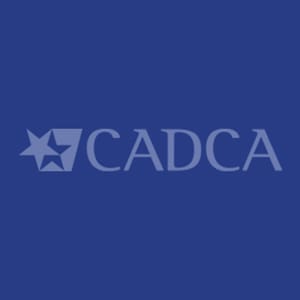Media Contact
Shweta Adyanthaya
Washington, D.C. – CADCA (Community Anti-Drug Coalitions of America) has launched an online toolkit for addressing substance use and misuse in veteran populations. CADCA selected five coalitions who graduated from the National Coalition Academy to implement substance use prevention projects focused on veterans in their communities. The five coalitions represented different demographics and included: Roane County Anti-Drug Coalition, Inc. from Kingston, Tennessee; Prevention Coalitions for Success (PC4S) from Murfreesboro, Tennessee; Gwinnett Coalition for Health and Human Services from Lawrenceville, Georgia; Troy Drug Free Community Coalition from Troy, New York; and Carter County Drug Free Coalition from Ashland, Kentucky. The online toolkit is based on the experiences and findings of the five participating coalitions.
“Prescription drug misuse is an epidemic that requires more than one strategy or tactic. It is going to take a comprehensive approach that employs multiple strategies to create population-level reductions to this problem,” said General Arthur T. Dean, Chairman & CEO, CADCA. “We are hopeful that this toolkit will highlight effective substance misuse prevention strategies for our veteran population.”
Every day, it’s estimated that more than 115 people in the United States die from opioid related overdoses. The misuse of and addiction to opioids including prescription pain relievers, heroin, and synthetic opioids such as fentanyl is a serious national crisis that affects public health as well as social and economic welfare. This crisis in our country is especially problematic for our veteran population, who in honorable service to our country may have returned home with physical injuries and/or Post Traumatic Stress Disorder (PTSD).
CADCA would like to thank McKesson Corporation for supporting the development of this toolkit. The toolkit will be a helpful resource for coalitions across the country who want to help prevent substance abuse among veterans in their communities. CADCA is contributing to the program by mobilizing, engaging, training, surveying, supporting and evaluating highly successful community coalitions. With a high density of veterans across our nation, the comprehensive coalition approach is the best local solution to address the substance use and misuse crisis in the veteran community.
“McKesson is proud to have supported CADCA’s initiative, which reflects our company’s commitment to supporting veterans and to helping address the nation’s opioid crisis,” said Pete Slone, Senior Vice President, McKesson Public Affairs. “CADCA’s coalition model, training expertise and mobilization of key sectors are all critical components in addressing this national epidemic.”
About CADCA
The mission of CADCA (Community Anti-Drug Coalitions of America) is to strengthen the capacity of community coalitions to create and maintain safe, healthy and drug-free communities globally. This is accomplished by providing technical assistance and training, public policy advocacy, media strategies and marketing programs, training and special events.
About McKesson Corporation
McKesson Corporation, currently ranked 6th on the FORTUNE 500, is a global leader in healthcare supply chain management solutions, retail pharmacy, community oncology and specialty care, and healthcare information technology. McKesson partners with pharmaceutical manufacturers, providers, pharmacies, governments and other organizations in healthcare to help provide the right medicines, medical products and healthcare services to the right patients at the right time, safely and cost-effectively. United by our ICARE shared principles, our employees work every day to innovate and deliver opportunities that make our customers and partners more successful — all for the better health of patients. As a company, we’re deeply concerned by the impact the opioid epidemic is having on families and communities across our nation – and we’re committed to being part of the solution. While McKesson provided support for the development of the toolkit and supports CADCA’s important work fighting drug abuse among our nation’s veterans, the toolkit was developed independently of McKesson and CADCA is solely responsible for the toolkit’s content.



